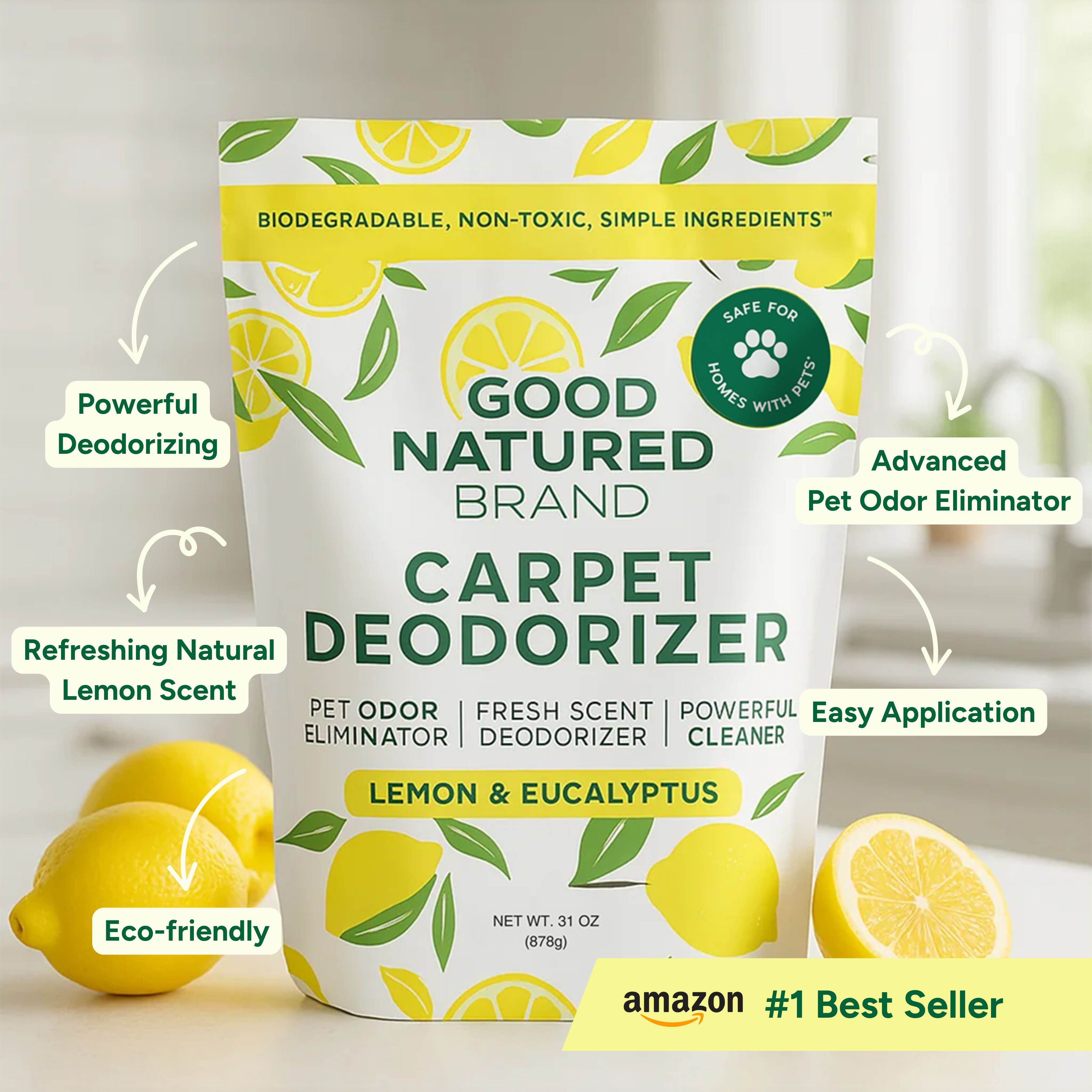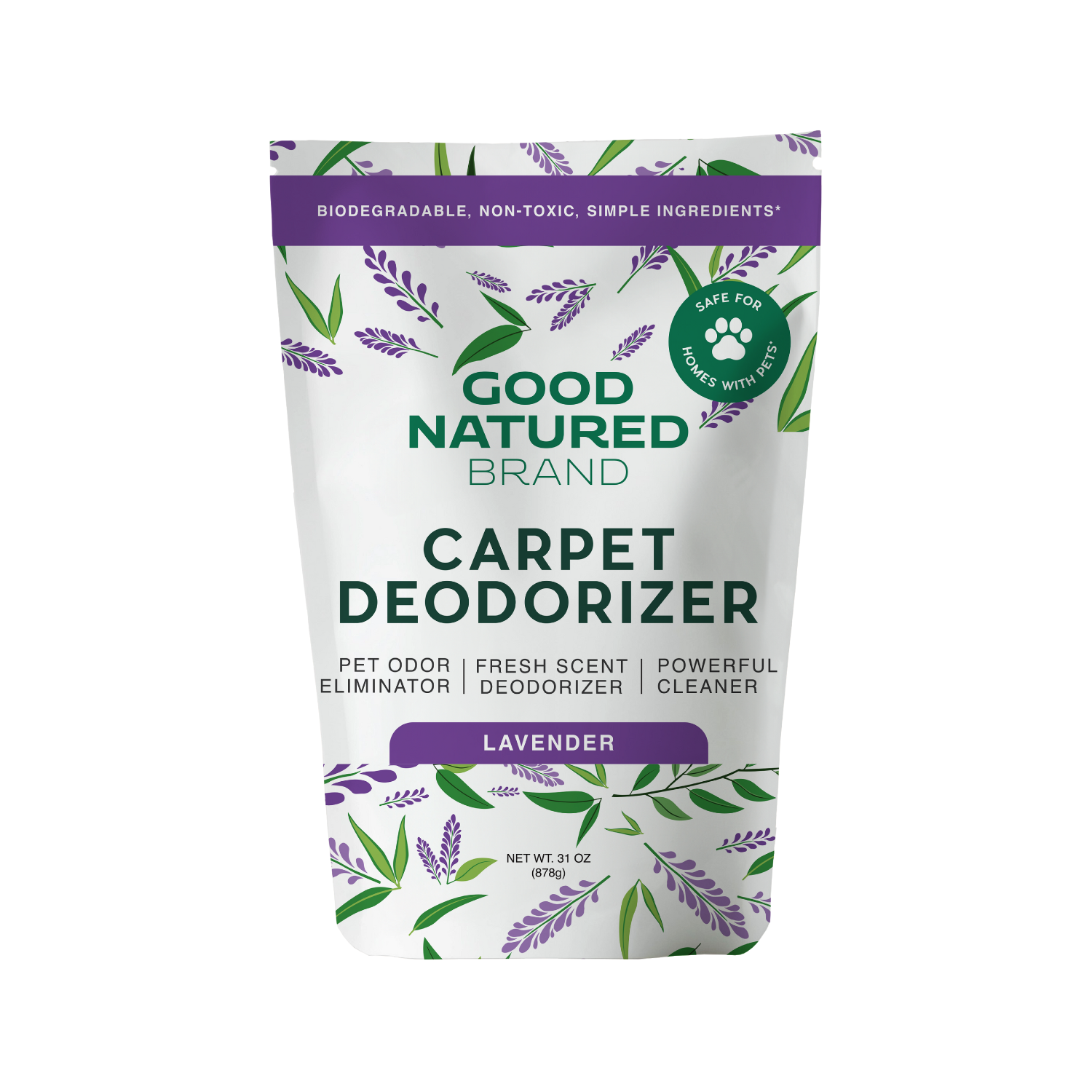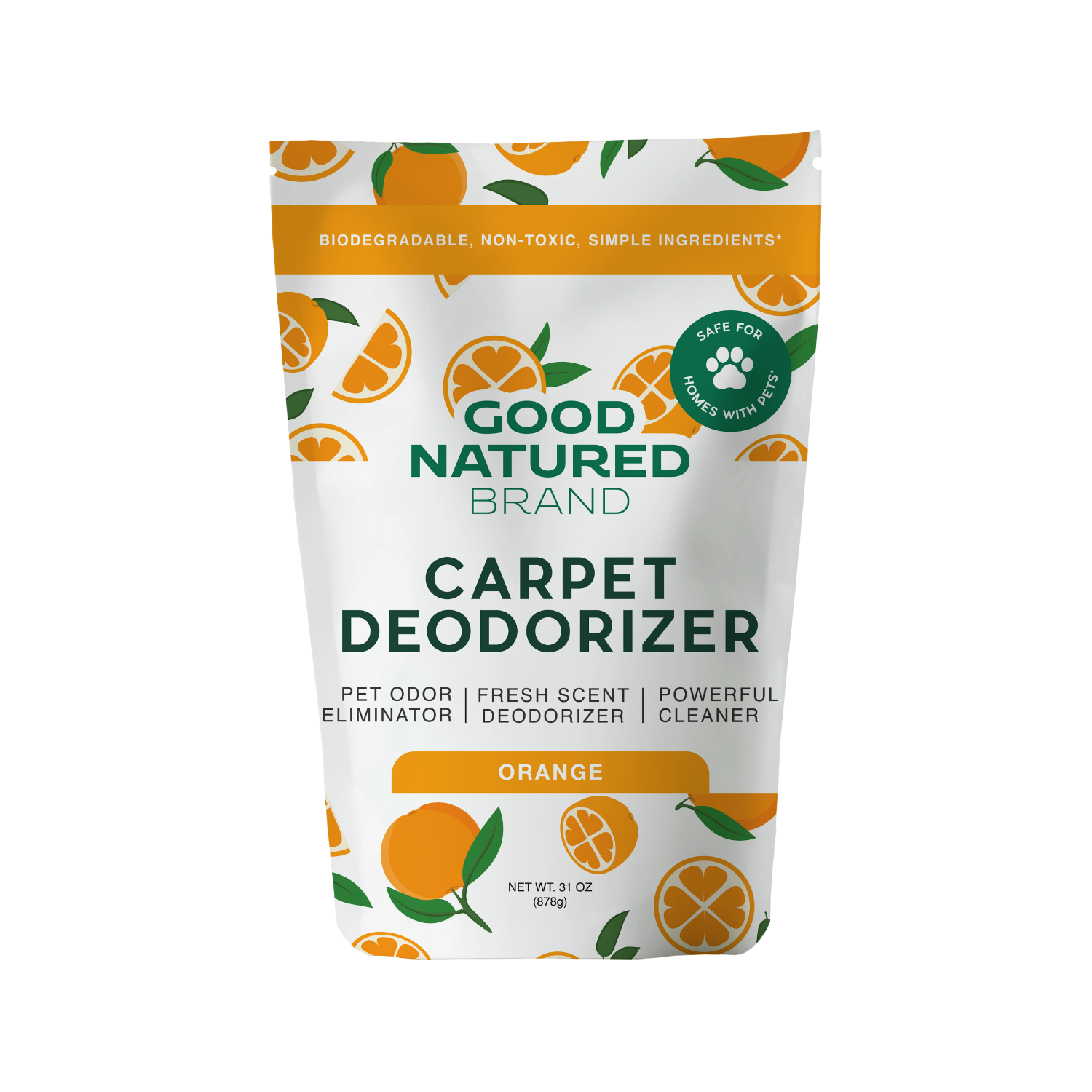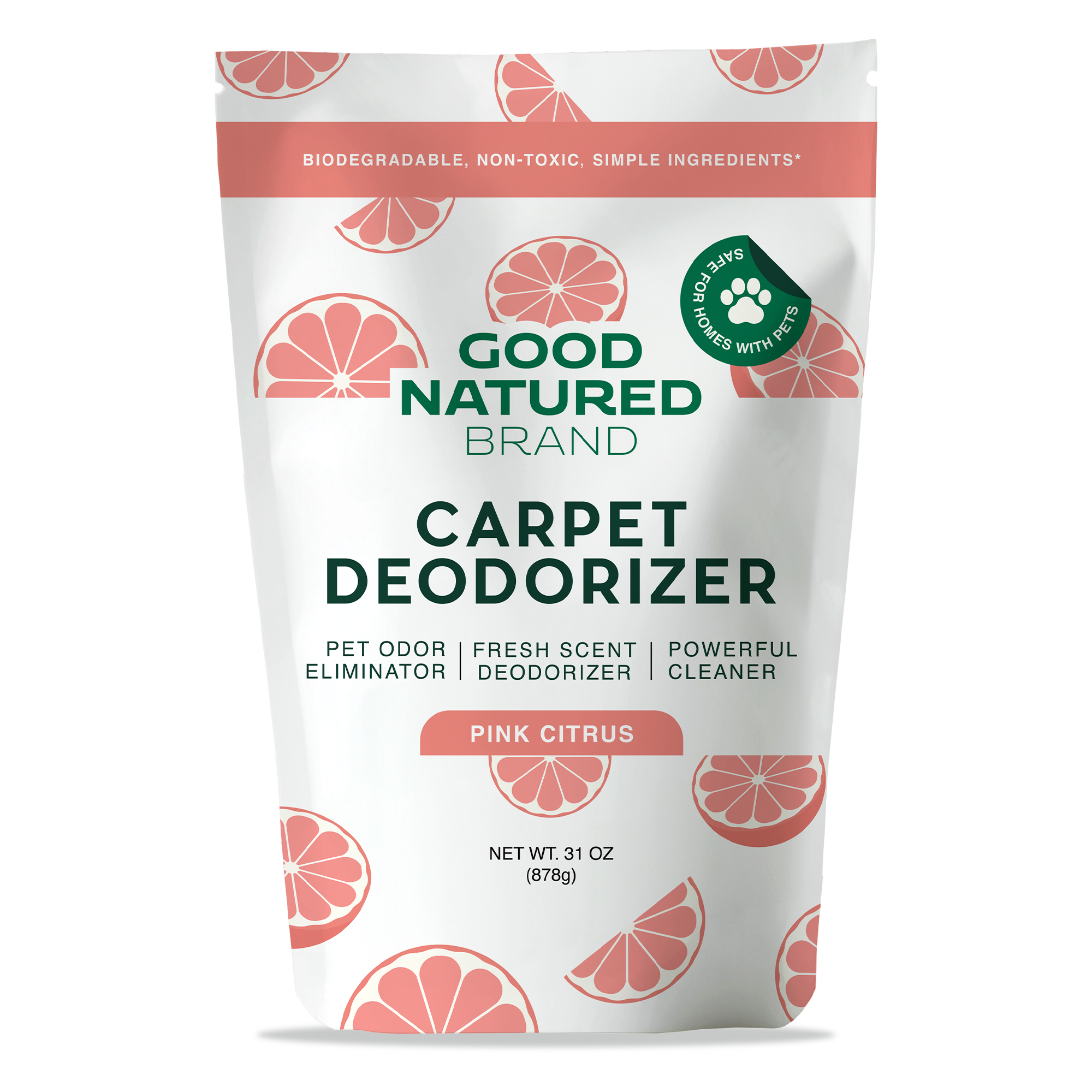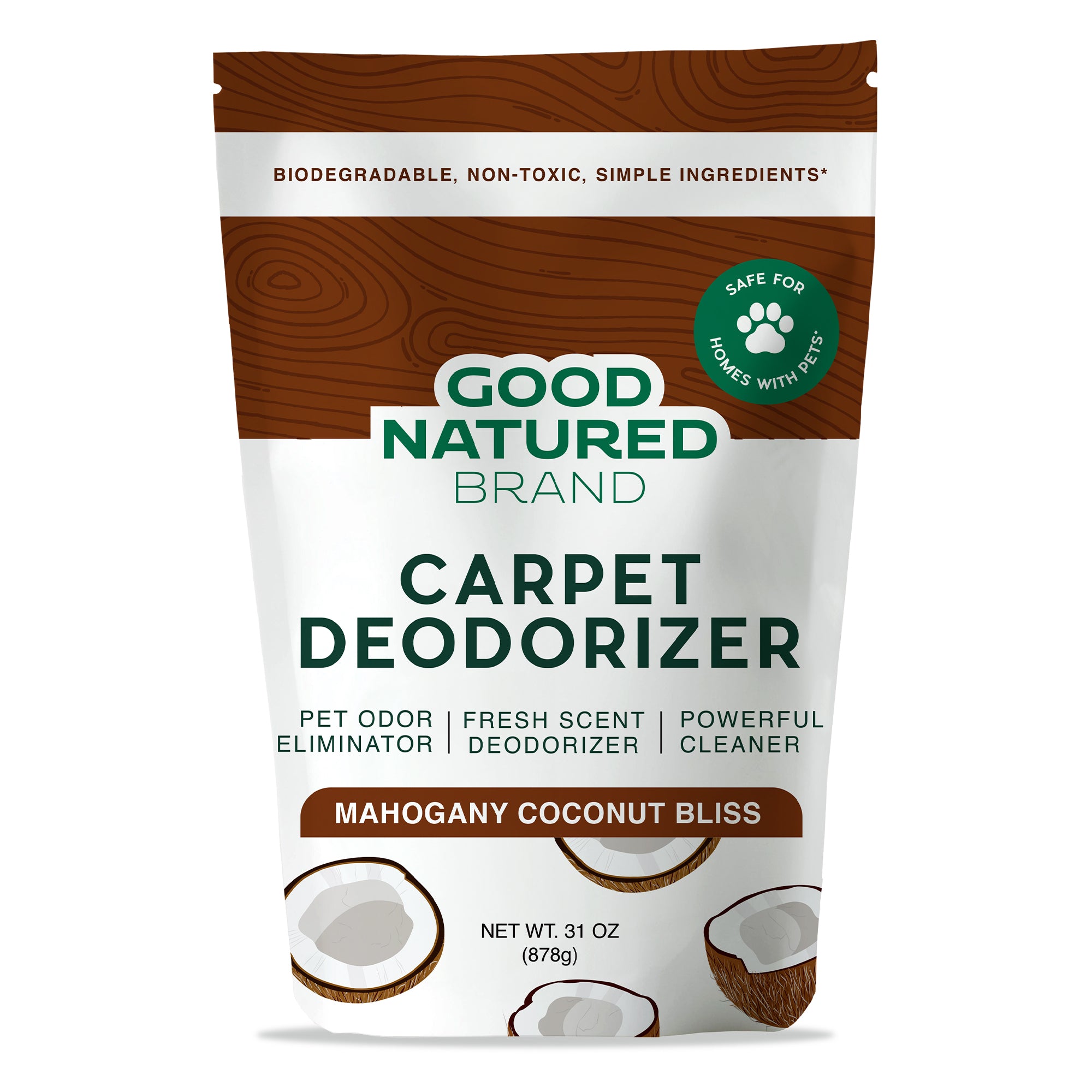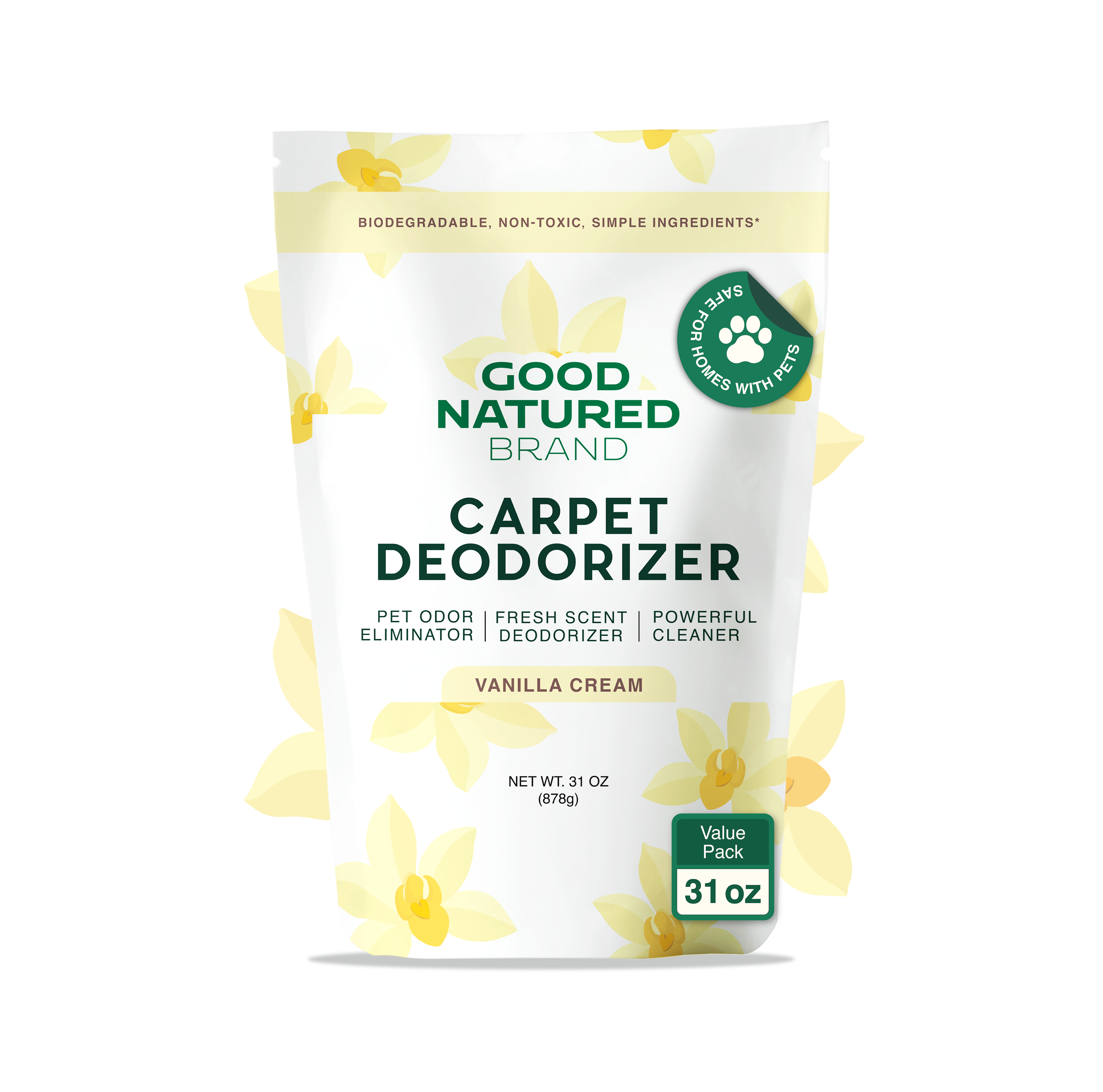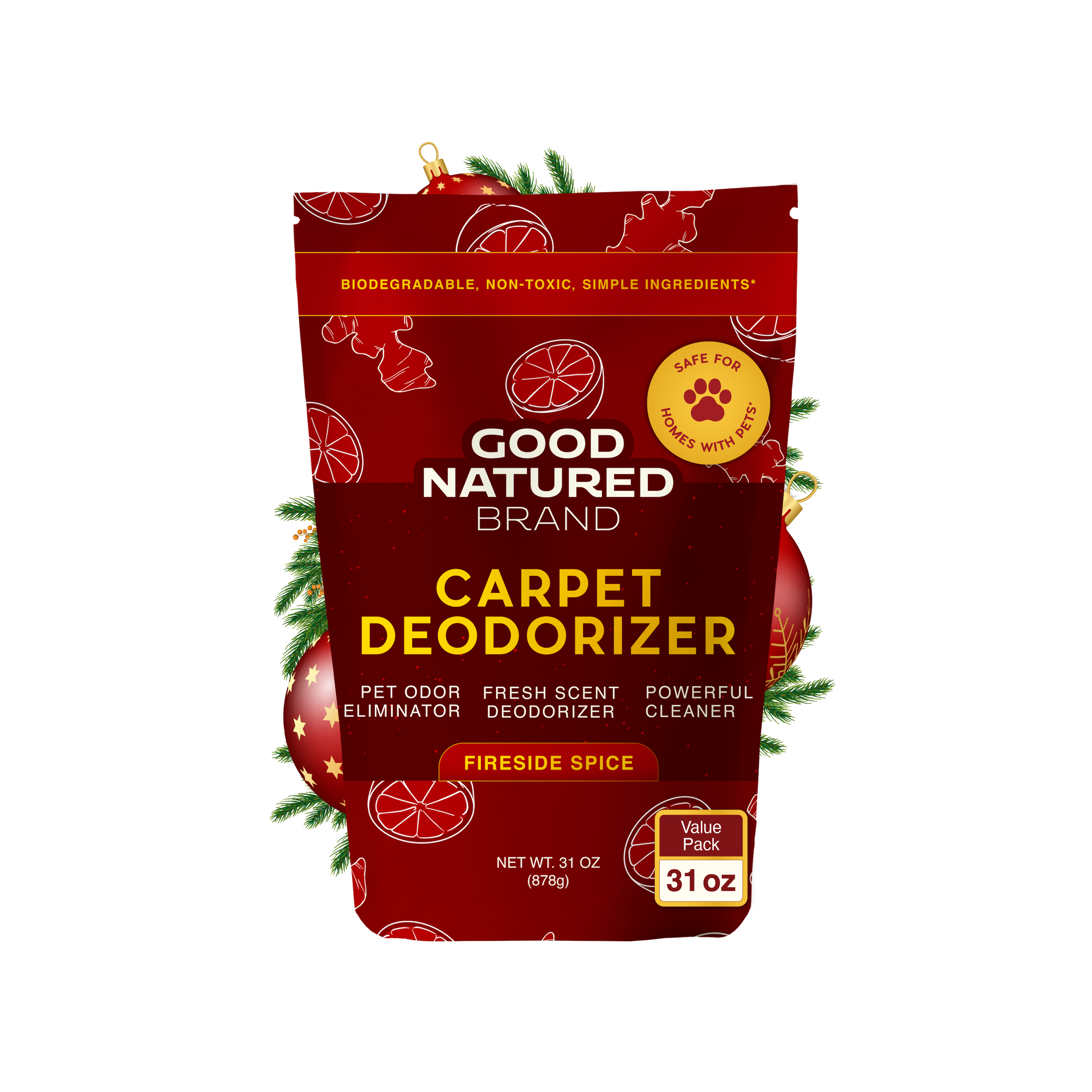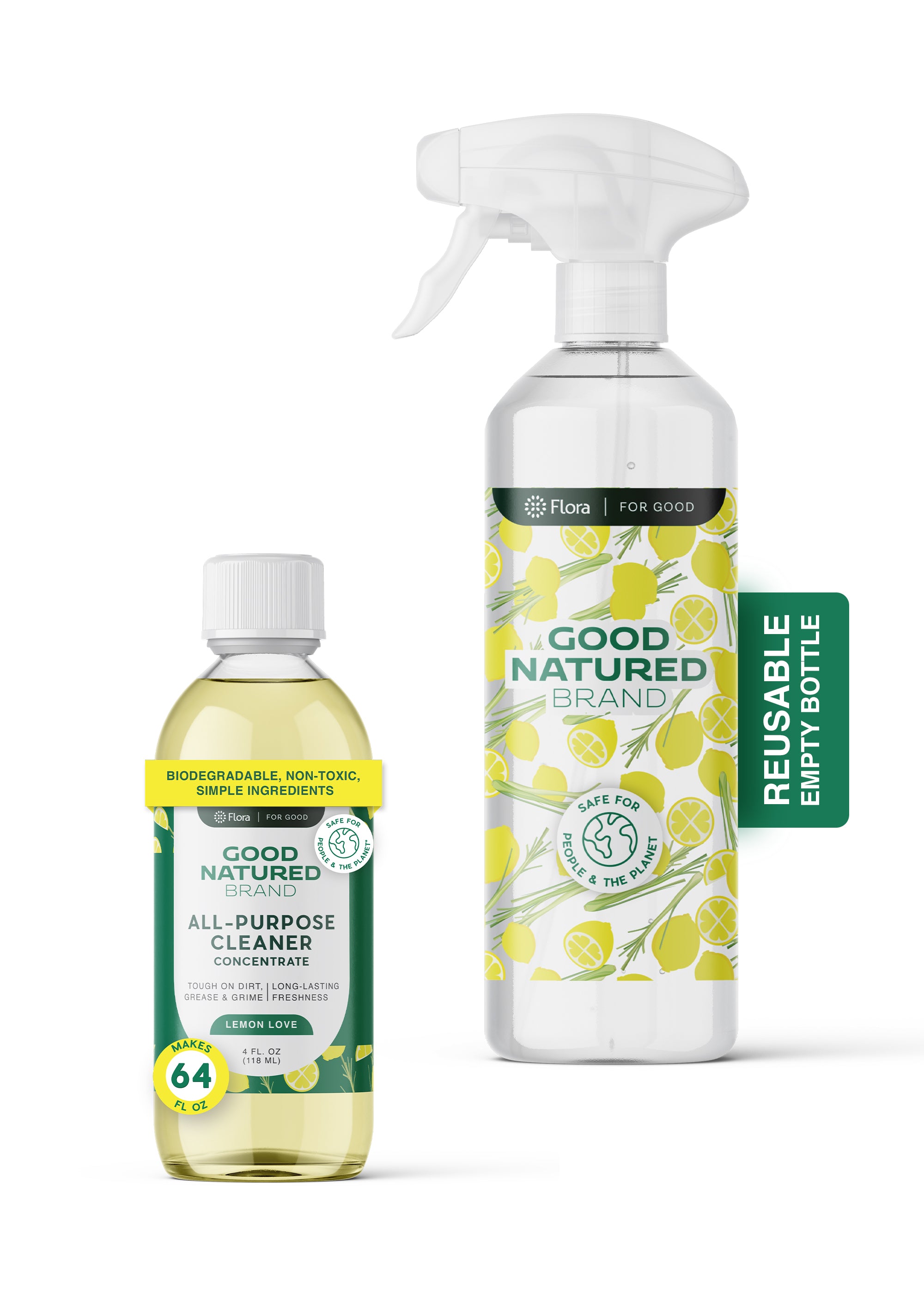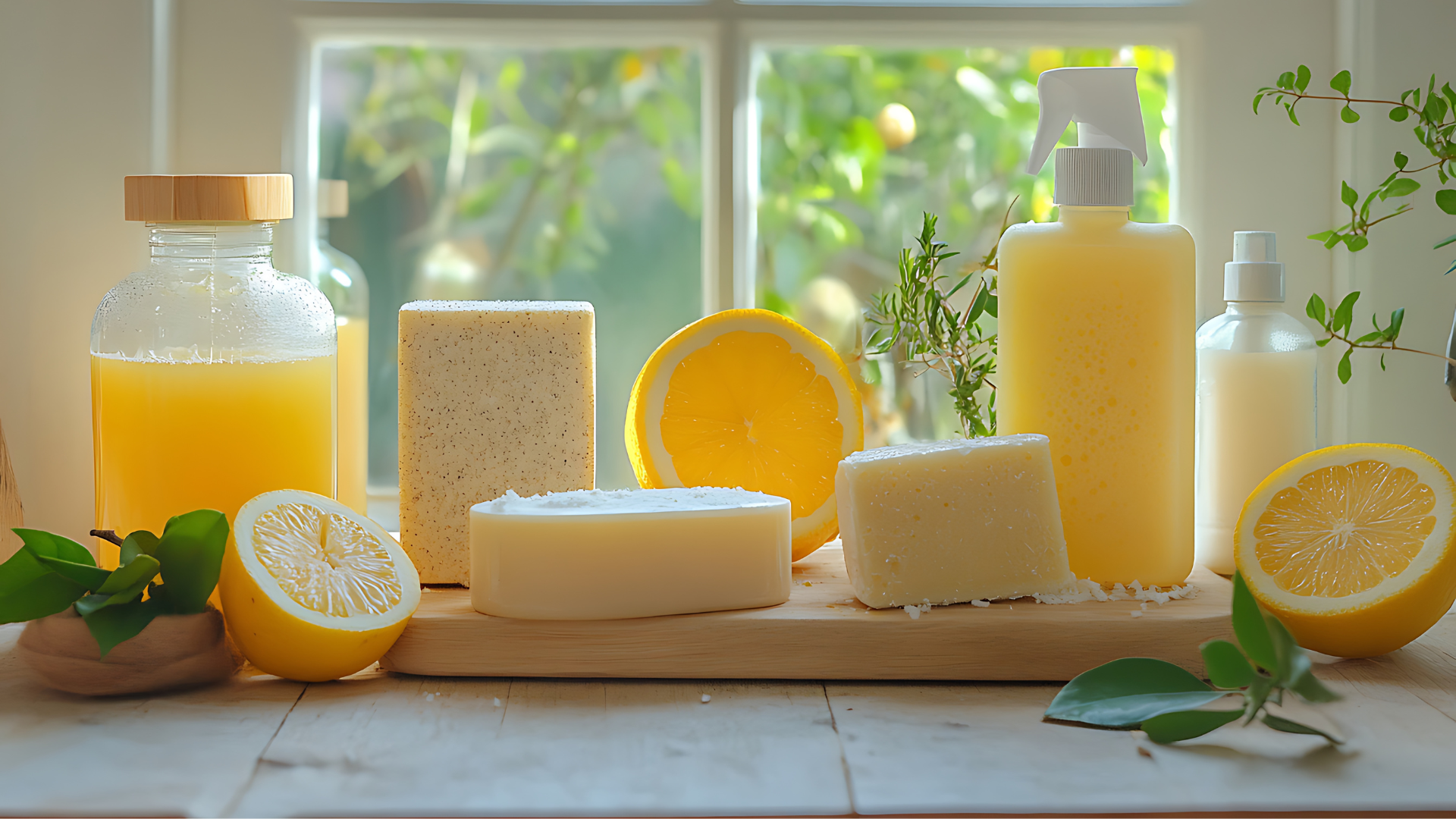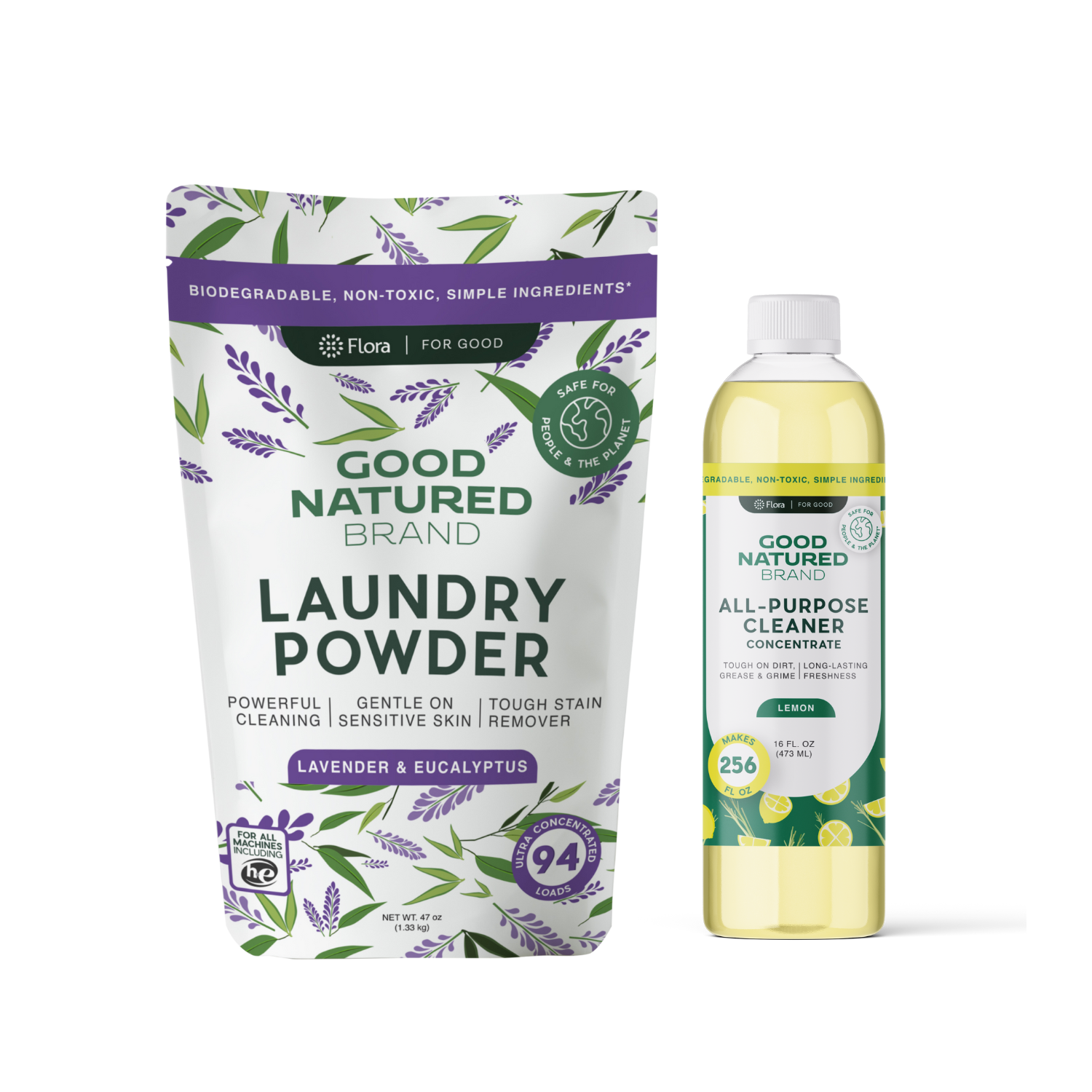The average home contains 62 toxic chemicals in cleaning products alone, according to the Environmental Working Group—substances that linger on surfaces your family touches and in the air you breathe. Most people assume that effective cleaning requires these harsh formulas, yet plant-based alternatives now deliver the same spotless results without the health risks.
This guide walks you through eight practical strategies for eliminating chemical exposure from your cleaning routine, from identifying the worst offenders in your cabinet to building a budget-friendly arsenal of safer products. You'll discover which ingredients to avoid, how to read labels like an expert, and why switching to gentler formulas protects everyone in your household—including pets—without sacrificing the fresh, clean home you work hard to maintain.
Why Reducing Harsh Chemicals Matters
Harsh chemicals in conventional cleaning products can linger in your home's air for hours after you finish cleaning, potentially causing respiratory irritation, skin reactions, and headaches. For families with pets and children, the risks increase—curious hands and paws often touch freshly cleaned surfaces before they dry completely. Switching to plant-based, non-toxic alternatives allows you to maintain a spotless home while protecting everyone who lives there.
The environmental impact reaches beyond your front door. When chemical-laden cleaners wash down your drains, they contribute to water pollution, and many release volatile organic compounds (VOCs) that compromise indoor air quality. Some conventional products contain ingredients linked to hormone disruption, yet manufacturers aren't always required to list every component on their labels.
Making the switch doesn't mean sacrificing cleaning power. Plant-based formulations have evolved significantly in recent years, offering effective solutions that tackle dirt, grease, and odors without the harsh side effects.
Spot the Biggest Chemical Offenders at Home
Before you reduce chemical exposure, identifying which products in your cleaning cabinet pose the greatest risks helps you prioritize replacements. A quick scan of your storage areas will likely reveal several culprits worth swapping out first.
Kitchen Degreasers With Butyl Solvents
Butyl solvents—often listed as butyl cellosolve or 2-butoxyethanol on ingredient labels—are petroleum-based chemicals found in heavy-duty kitchen degreasers. These powerful solvents cut through grease effectively but release fumes that irritate eyes, nose, and throat, particularly in spaces without good airflow. The vapors from these products can cause discomfort even during brief cleaning sessions.
Oven And Drain Cleaners Containing Lye
Lye, or sodium hydroxide, is an extremely caustic substance that causes chemical burns on contact with skin. Oven and drain cleaners rely on lye's ability to dissolve organic matter, but this power comes with significant risks including dangerous fumes and potential for accidental splashes. Even brief exposure can result in painful injuries that require medical attention.
Aerosol Air Fresheners With Synthetic Fragrance
That "clean linen" or "fresh spring" scent often comes from a mixture of undisclosed chemicals hidden under the term "fragrance" on product labels. These synthetic fragrances frequently contain phthalates and other VOCs that contribute to indoor air pollution and can trigger allergic reactions or asthma symptoms. Aerosol delivery systems add propellants to the mix, creating an even heavier chemical load in your breathing space.
Tip 1 Switch to Plant-Based All-Purpose Cleaners
Plant-based all-purpose cleaners use natural cleaning power from ingredients derived from renewable sources like coconuts, corn, and citrus fruits. These formulations rely on plant-derived surfactants—compounds that help water spread and penetrate dirt—to break down grime just as effectively as synthetic versions, without leaving harsh chemical residue.
The versatility of a quality plant-based cleaner means you can consolidate your cleaning products, reducing both clutter and chemical exposure in one step. You'll find these cleaners handle everything from kitchen counters to bathroom sinks with impressive results.
Look For Coconut-Derived Surfactants
Surfactants are the workhorses of any cleaning product because they lower the surface tension of water, allowing it to spread and lift dirt more effectively. Coconut-derived surfactants like coco-glucoside and lauryl glucoside offer powerful cleaning action while remaining biodegradable and gentle on skin. Unlike petroleum-based surfactants such as sodium lauryl sulfate, coconut-based options don't strip away your skin's natural oils or leave behind irritating residues.
Check Pet-Safe Fragrance Options
Natural essential oils can provide pleasant scents without the health risks associated with synthetic fragrances, though not all are safe for pets. Lavender and chamomile are generally well-tolerated by both cats and dogs, while tea tree, eucalyptus, and many citrus oils can be toxic to cats in particular. The safest approach involves choosing fragrance-free options or products specifically formulated with pet-safe scenting levels.
Tip 2 Choose Safer Disinfectants Without Bleach Fumes
Disinfecting your home doesn't require exposing your family to chlorine bleach fumes that irritate lungs and eyes. Several effective alternatives provide germ-killing power without the harsh chemical downsides.
Hydrogen Peroxide Solutions
Hydrogen peroxide breaks down into water and oxygen, making it an environmentally friendly disinfectant effective against bacteria, viruses, and mold. A 3% solution—the concentration commonly available in drugstores—works well for most household disinfecting tasks when allowed to sit on surfaces for at least one minute. For tougher jobs, you can find cleaning products with higher concentrations specifically formulated for household use.
Alcohol-Based Sprays Over 70 Percent
Isopropyl or ethyl alcohol at concentrations between 70% and 90% effectively kills most pathogens by breaking down their proteins and dissolving their protective membranes. This concentration range actually works better than higher percentages because the water content slows evaporation, giving the alcohol more time to work. Alcohol-based sprays dry quickly and leave no residue, making them ideal for high-touch surfaces like doorknobs and light switches.
Tip 3 Read Labels and Look for Trusted Certifications
Learning to decode product labels empowers you to make informed choices about what you bring into your home. Third-party certifications take the guesswork out of evaluating cleaning products by verifying that they meet rigorous safety and environmental standards.
EPA Safer Choice Seal
The EPA Safer Choice label indicates that a product's ingredients have been reviewed by the Environmental Protection Agency and meet strict human health and environmental criteria. Products bearing this seal contain ingredients that pose the least concern among chemicals in their class. This certification considers everything from ingredient toxicity to packaging sustainability, giving you confidence in your purchase.
Leaping Bunny Cruelty-Free Logo
The Leaping Bunny logo certifies that no animal testing was conducted at any stage of product development, from ingredient sourcing through final formulation. While this certification focuses on ethical considerations rather than chemical safety, companies committed to cruelty-free practices often align with broader values around health and environmental responsibility.
Tip 4 Try These Pantry-Staple DIY Cleaners
Creating your own cleaners from common household ingredients offers complete control over what touches your surfaces and enters your indoor air. These simple recipes deliver effective cleaning power at a fraction of the cost of store-bought alternatives.
Before mixing any DIY cleaner, gather clean spray bottles and label them clearly with contents and date. Always test homemade cleaners on an inconspicuous area first, especially on natural stone or delicate surfaces.
1 Baking Soda Soft Scrub
Baking soda's mild abrasive properties make it perfect for scrubbing sinks, tubs, and stovetops without scratching surfaces. Mix three parts baking soda with one part water to create a paste, apply to the surface, let sit for 5-10 minutes, then scrub with a damp cloth or sponge. For extra deodorizing power, you can add a few drops of essential oil to the mixture.
2 Citrus Vinegar All-Purpose Spray
Fill a jar with citrus peels from lemons, oranges, or grapefruits, cover with white vinegar, and let steep for two weeks before straining. Dilute the infused vinegar with equal parts water in a spray bottle for an effective all-purpose cleaner that cuts grease and leaves a fresh scent. The citrus oils add natural degreasing power and mask vinegar's sharp smell, though you can skip this step if you're avoiding citrus around cats.
3 Castile Soap Floor Solution
Add 1/4 cup of liquid castile soap to a gallon of warm water for a gentle yet effective floor cleaner suitable for most hard surfaces. For extra shine on tile or linoleum, add 1/4 cup of white vinegar to the mixture, though never use vinegar on natural stone floors. This solution cleans without leaving sticky residue and rinses away completely, making it safe for homes with pets who walk barefoot across your floors.
Tip 5 Ventilate Rooms and Store Products Safely
Proper ventilation and storage practices significantly reduce your exposure to cleaning product fumes and prevent accidental poisonings. Even plant-based cleaners benefit from good air circulation, as any concentrated product can irritate sensitive individuals.
Open Windows Or Use Exhaust Fans
Cross-ventilation—opening windows on opposite sides of your home—creates airflow that quickly disperses cleaning product vapors and moisture. If outdoor air quality is poor or weather doesn't permit open windows, run bathroom and kitchen exhaust fans for at least 15 minutes after cleaning. Air purifiers with activated carbon filters can also help remove airborne chemicals between cleaning sessions.
Keep Concentrates Out Of Children's Reach
Store all cleaning products, even natural ones, in locked cabinets or on high shelves where children and pets cannot access them. Concentrated formulas pose particular risks because their potency can cause harm if ingested or splashed in eyes. Never transfer cleaning products to unmarked containers or food containers, as this creates dangerous confusion that can lead to accidental poisoning.
Tip 6 Avoid Mixing Products That Create Toxic Fumes
Combining certain cleaning products triggers chemical reactions that produce dangerous gases, even when the individual products seem harmless on their own. Understanding which combinations to avoid can prevent serious injuries.
Skip Bleach And Ammonia Combos
Mixing bleach with ammonia-containing products creates chloramine gas, which causes immediate respiratory distress, chest pain, and watery eyes. In high concentrations or poorly ventilated spaces, chloramine exposure can lead to pneumonia. Many glass cleaners and some all-purpose cleaners contain ammonia, so always read labels carefully before using any product alongside bleach.
Never Blend Vinegar With Hydrogen Peroxide
While both vinegar and hydrogen peroxide are safer alternatives to harsh cleaners, combining them creates peracetic acid—a corrosive substance that irritates skin, eyes, and respiratory passages. You can use both products in sequence by applying one, rinsing thoroughly, then applying the other for enhanced cleaning power, but never mix them in the same container.
Tip 7 Adopt a 15-Minute Low-Tox Cleaning Routine
Establishing a consistent cleaning rhythm prevents dirt and grime from building up to levels that tempt you to reach for harsh chemicals. Breaking tasks into manageable daily, weekly, and monthly segments keeps your home fresh without overwhelming your schedule.
Daily Counter Wipe
Spend five minutes each evening wiping down kitchen counters, stovetops, and bathroom sinks with a plant-based all-purpose cleaner. This quick habit prevents grease and soap scum from hardening, which means you won't need heavy-duty degreasers later. A simple spray and wipe removes fresh spills before they become stubborn stains.
Weekly Dust And Vacuum
Dedicate 10 minutes weekly to dusting surfaces with a damp microfiber cloth, which traps particles rather than spreading them into the air. Follow up with vacuuming to remove settled dust, pet hair, and allergens from floors and upholstery. Regular dust removal reduces the need for chemical air fresheners by eliminating odor-causing particles at their source.
Monthly Deep-Clean Rotation
Choose one room or area each month for a thorough deep clean using your plant-based products. This rotating approach prevents overwhelm while ensuring every part of your home receives attention throughout the year. Monthly deep-cleaning catches issues before they require harsh chemical intervention, maintaining your home's cleanliness through consistent care rather than periodic chemical treatments.
Tip 8 Stick With Your New Routine on a Budget
Transitioning to chemical-free cleaning doesn't require a complete financial overhaul. Strategic purchasing and smart product choices make this lifestyle shift affordable and sustainable long-term.
Use Refillable Concentrates
Concentrated cleaning formulas dilute with water, meaning one bottle produces multiple spray bottles of ready-to-use cleaner. This approach dramatically reduces cost per use while minimizing plastic waste from packaging. Many plant-based brands offer concentrated refills that cost significantly less than pre-diluted versions, stretching your cleaning budget further.
Buy In Bulk Over $30 For Free Shipping
Stocking up on your favorite plant-based cleaners when you hit free shipping thresholds maximizes value and ensures you never run out. Good Natured Brand offers free shipping on orders over $30, making it easy to try multiple products while avoiding shipping costs. Planning your purchases to meet minimum order amounts turns routine restocking into a cost-effective strategy.
Shop pet-safe cleaning essentials to build your chemical-free cleaning arsenal with products designed for families who prioritize health and effectiveness.
Freshen Your Home the Good Natured Way
Making the switch to plant-based cleaning products represents more than just a purchasing decision—it's a commitment to protecting the health of everyone in your household while maintaining the clean, fresh home you deserve. Good Natured Brand formulates every product with this dual promise in mind, combining the effectiveness you need with the safety your family requires.
Our carpet deodorizers, all-purpose cleaners, and laundry products harness the power of natural ingredients to eliminate odors and tackle messes without harsh chemical residues. With thousands of five-star reviews from families who've made the switch, you can trust that plant-based cleaning delivers real results.
FAQs About Reducing Chemicals in Daily Cleaning
Can I finish my current cleaners instead of throwing them out?
Yes, using up existing products with proper ventilation allows you to gradually transition without creating waste. Open windows while cleaning with conventional products, and replace each one with a plant-based alternative as it runs out rather than discarding half-full bottles.
Which essential oils are safest for cats and dogs?
Lavender and chamomile are generally pet-safe when properly diluted, making them good choices for households with both cats and dogs. However, avoid tea tree, eucalyptus, and citrus oils around cats, as even small amounts can be toxic—many pet owners prefer fragrance-free options to eliminate any risk.
How can I improve air quality if I live in a small apartment?
Use portable air purifiers with HEPA and activated carbon filters to remove particles and chemical vapors from your limited space. Open windows for cross-ventilation whenever weather permits, and choose fragrance-free cleaning products to minimize airborne irritants in your compact living area.
